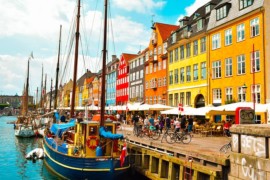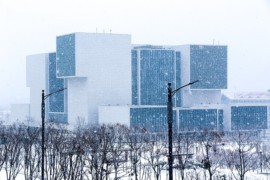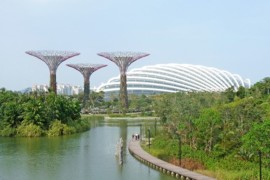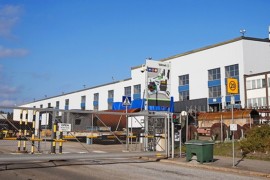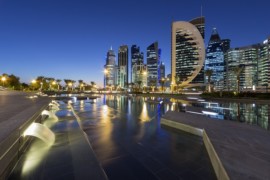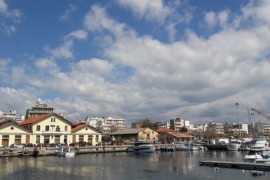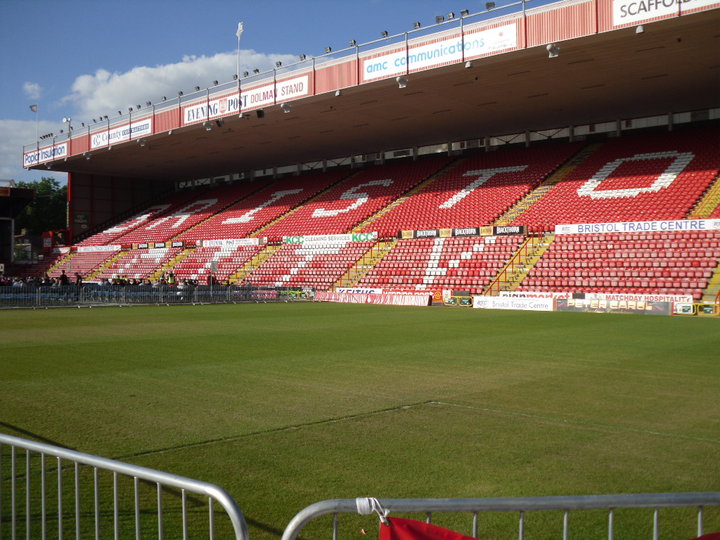
Newcastle United and Bristol City have committed to energy efficient ventures to power their stadiums this week.
Newcastle has installed a gas-fired combined heat and power system inside the ‘carbon positive’ club’s St James’ Park stadium, simultaneously cutting emissions while generating power and heat.
Newcastle United logo
Business Green reports that the ‘Toon’ already had the title of world’s first carbon positive football club prior to this initiative, offsetting more carbon than it emits and securing the independent Carbon Trust Standard in the process.
Now a new 185KWh natural gas-fuelled CHP unit supplied by ENER-G is expected to reduce the club’s carbon dioxide emissions by a further 390 tonnes over the next year.
Due to electrical grid network constraints, ENER-G was forced to downsize its original plans for the CHP from 230KWh to 185KWh in order to achieve a 200KVa load threshold.
In addition, there were space constraints to consider, with the room designated for the unit situated eight storeys up within the fabric of the stadium. The CHP system was therefore delivered in three sections and then rebuilt on site.
The technology was supplied on a ‘pay-as-you-save’ basis by ENER-G via the firm’s discount energy purchase scheme, which means Newcastle FC has had no capital costs to pay for equipment installation, and will face no costs towards the operation and aftercare of the CHP unit.
Under the 12-year agreement with the club, the CHP system is funded through a metered energy charge which is guaranteed to be lower than previous electricity purchase costs, according to ENER-G, delivering a net financial saving for the club, while the heat is supplied free of charge.
“Newcastle United’s move to onsite generation with CHP is the latest success story in the club’s impressive green energy progress,” said ENER-G’s sales director Ian Hopkins. “The club is demonstrating that environmental leadership also makes good financial sense by reducing its energy bills at the same time as shrinking its carbon footprint. Best of all, the club has installed the cogeneration system without any capital cost and is able to enjoy immediate savings, without any upfront expense.”
“The less energy we use, the less carbon we emit and the less impact we have on the environment, both locally and globally,” said Newcastle United’s facilities manager Eddie Rutherford. “Our partnership with ENER-G to introduce a high efficiency CHP system is another major step in our mission to achieve outstanding green performance.”
Meanwhile Bristol’s Ashton Gate stadium has reduced its carbon emissions by 20 per cent – thanks to a new solar-powered stand completed by EvoEnergy.
The 460-panel, 117 kWp PV system was installed as part of a major refurbishment of the grounds, which is home to Bristol City FC and Bristol Rugby Club.
It is expected to generate 95,090 kWh annually – the equivalent generation to satisfy the average electricity demand of 23 homes. Due to the venue’s size and activities, all of the power generated from the solar system will be used on site.
Stadium owner Bristol Sport joined forces with Bristol City Council to deliver the energy efficient measure. The council paid for and will manage the PV installation – predicted to save Ashton Gate £150,000 over 20 years on its energy bill, while allowing the local authority to recuperate the costs of the system and make a small surplus.
The 44m high West Stand comprises Vikram 255w solar panels, and was completed by a four-man team at EvoEnergy in seven days.
Martin Griffiths, chairman of Bristol Sport, said: “We’ve worked hard to design, build and operate a socially responsible venue for the city. As well as being home to the two largest sports teams in the area, we also host numerous conferences and events every day. The installation of solar PV helps ensure we’re being environmentally friendly while also cutting down on operating costs.”
Helen Holland, cabinet member for place with responsibility for energy at Bristol City Council, said: “The stadium working with us during its renovation sends a really strong message that it can make commercial sense for high energy consuming businesses to install renewables onsite.”


